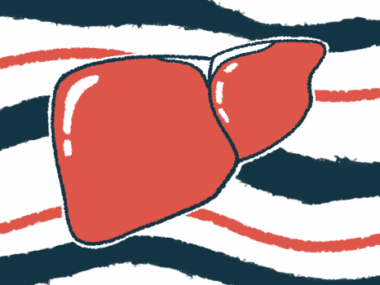1st patient enrolled in WIND-PSC natural history study
Global study to track course of PSC, generate real-world data for research
Written by |

The first patient has been enrolled in WIND-PSC, a global study to track the natural course of primary sclerosing cholangitis (PSC) and generate real-world data to support clinical research and help scientists advance toward new treatments.
The study (NCT06297993), led by the patient-led nonprofit organization PSC Partners Seeking a Cure and its Canadian affiliate, plans to enroll up to 2,000 adults, ages 18 to 75, at multiple sites across North America and Europe. For now, only the Schiff Center for Liver Diseases at the University of Miami is recruiting patients.
Results from the PSC Partners’ 2020 Our Voices survey showed one of the most important goals in PSC research for the community was, beyond finding a cure, the development of treatments to slow progression of PSC.
WIND project launched in 2022
In response, the nonprofit launched in 2022 the Worldwide Integration of Natural History Databases (WIND) project, which was renamed WIND-PSC in 2023. The goal was to collect clinical, patient-reported, and biomarker data on PSC and its disease course so they could be used by the research community to help in the development of disease-modifying therapies.
“The community spoke up to us clearly regarding their priorities for research and we have taken their voice to heart with WIND-PSC,” Ricky Safer, PSC Partners’ founder and CEO, said in an organization press release.
For Safer, who has the disease herself, the WIND-PSC study “represents the culmination of the many years our organization has supported novel research to find a cure for PSC.”
This is the first patient-led study launched solely with patient community funds. Its sponsor, Arbor Research Collaborative for Health in Ann Harbor, Michigan, will serve as the data coordinating center and provide other key clinical services.
To support the design and implementation of the study, the PSC Partners team brought together a steering committee of global PSC experts.
“There are many stakeholders in addition to the PSC patient and research community,” said Stephen Rossi, PSC Partners’ chief scientific officer. “We have been actively engaging and collaborating with all of them as we move into this important first step of launching the project.”
PSC is rare chronic liver disease marked by inflamed, scarred bile ducts
PSC is a rare chronic liver disease marked by inflamed and scarred bile ducts, the tubes that carry bile, a digestive fluid, from the liver to the bowel. Over time, this may damage the liver and lead to liver failure. Aside from liver transplantation, there are currently no approved treatments for PSC.
As part of the WIND-PSC study, each patient with a diagnosis of PSC affecting large bile ducts will be followed for up to five years. Clinical, imaging, and biomarker data will be collected each year. Patients’ symptoms, medications, and procedures will be monitored every three months.
One of the goals is to form an external group of untreated PSC patients that can serve as a control in clinical studies assessing the safety and efficacy of potential new treatments. In such a setting, the outcomes of treated patients are compared with those of the external control group to see if the therapy has disease-modifying effects.
Other goals include drawing on these real-world data to identify new outcome measures to be used in trials, and to evaluate patient-reported symptoms and quality of life with standardized tools to track changes in disease progression.
“WIND-PSC is a unique project not only in its goals but in the partnership between the PSC clinical research and patient community,” said Cynthia Levy, MD, principal investigator for WIND-PSC at the University of Miami. “By working together, we believe this project can accelerate drug development.”




